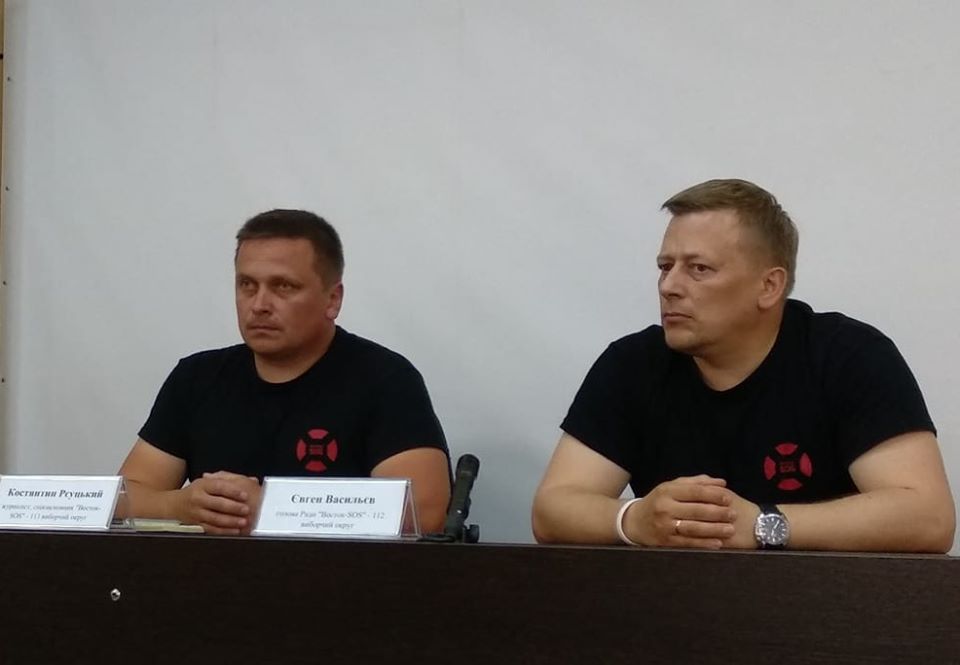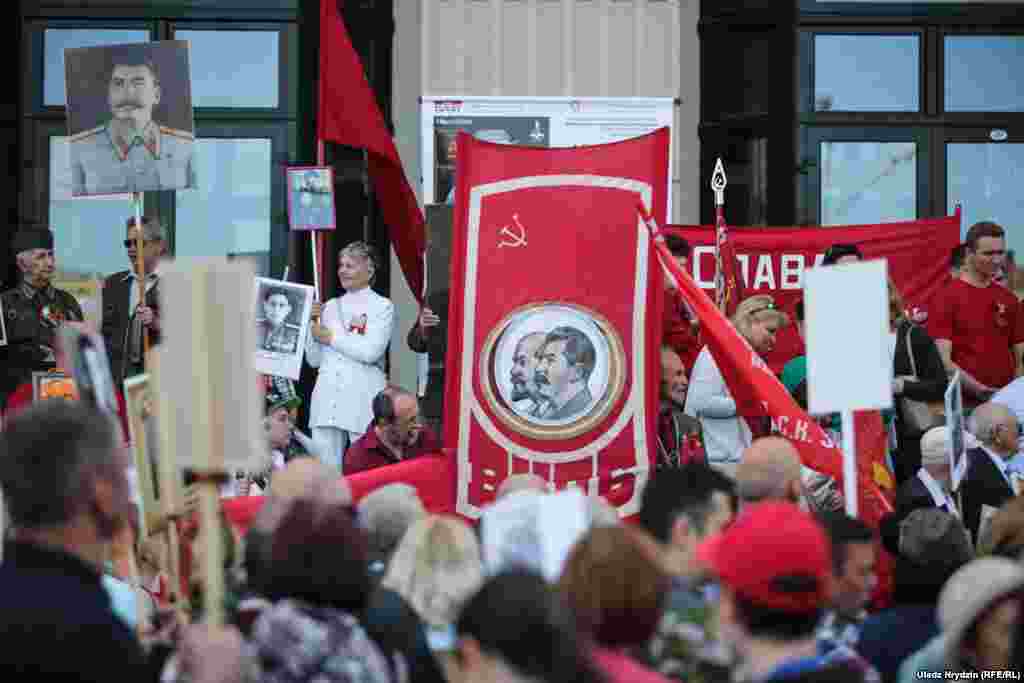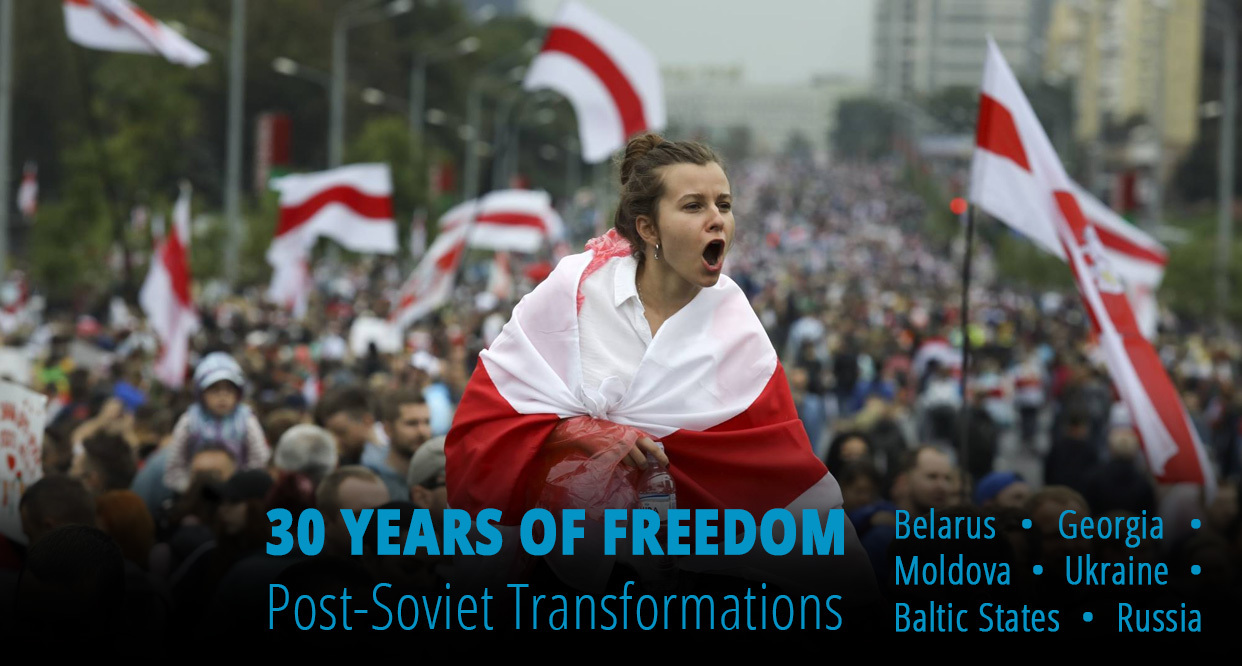A just-released Ukrainian human rights activist tells about what he saw in Belarusian jail.
Soon after their arrival, they were both detained while filming law enforcers seizing a protester and forcing him into their car. Reutskyi and Vasiliev went missing for almost two days. Then, due to the efforts of Ukrainian diplomats and civil society, they were released. Once safely home, Reutskyi described what the two underwent during their detention.
The following material is based on the interview Reutskyi gave to svoi.city.
At the police departments
Reutskyi described how detainees were taken to the areas of the police stations reserved for torture. With scores of them, the cells were overcrowded, and many had to be held in station yards or in sports halls.
He said police officers were given carte blanche to deal with the detainees as they wished. They beat them cruelly. They were especially brutal with those who had resisted them by throwing stones or Molotov cocktails.
“I really thought, after spending the night in the station, that several people who were tortured by the riot police would not survive. But, fortunately for them, everything ended up alright.”
All the tortures were taking place just behind Reutskyi’s back.
“Me, Zhenya [Vasiliev], and almost 50 other people stood facing the fence, arms raised, and feet shoulder-width apart. For changing posture, for looking around, for dropping hands or shifting legs, the policemen would beat us immediately.”
Raising public alarm helped
Reutskyi went on to say that he and Vasiliev were beaten with truncheons. He adds, however, that the guards were not as hard on them as they were on the Belarusians.
“We were protected a bit by our status. I introduced myself as a journalist and Zhenya as a human rights activist. And after the alarm was raised by media — I think after a short time — calls from the Ukrainian side to the Belarusian Ministry of Foreign Affairs and the Ministry of Internal Affairs started.”
At one point, Reutskyi actually overheard the guards talking about an order not to beat them. He went on to say that even random people were detained – some young men at their detention centre were seized when going for a beer. First, they were beaten on the spot and then several times more at the station.
“One was abused especially cruelly. He was anally assaulted with a rubber truncheon.”
#Belarus, the center of Europe, 2020. A girl protesting against elections rigged to keep Lukashenka in power had her cervix ruptured because the riot police in Okrestino raped her with a baton. Twice.
Confirmed by a gynecologist:https://t.co/p9l2Jv072u#StandWithBelarus pic.twitter.com/fLZHFJ5rQt
— Euromaidan Press (@EuromaidanPress) August 17, 2020
In Reutskyi’s presence, one of the women who tried to persuade the officers that they were committing crimes against their own people was beaten with truncheons.
“Deliberately, they beat her in the kidneys, back, and head.”
Reutskyi explained that there were five young women who were being held together with them, and that they were treated somewhat better. Later, he discovered this had not been the situation everywhere.
The government’s cruelty
Reutskyi described the situation in Belarus as a “conveyor of brutality.”
“Police across the whole country operate according to one approved technique — it is necessary to show maximum inhumanity. To show that the state is a machine that will crush anyone who tries to talk about the injustice of what is happening.”
He was especially struck by seeing young lyceum cadets engaging in torture.
“I don’t remember whether they were from the police or internal military forces. This is where their internship takes place. Senior police officers looked after them and, in general, showed them how to mock the detainees. And, to my great regret — it is tragic for me to admit — but many of them, these 20-year-old boys, get great pleasure from the process.”
What was going on in the Akrescina detention center
Reutskyi outlined how neither investigators nor judges were interested in what actually occurred that night.
“Protocols are written in advance. They brought a bundle of documents into the yard and forced everyone to sign. However, no one was allowed to read them. Those who refused to sign were beaten with truncheons. And in the end, everyone signed.”
Reutskyi himself did not sign his protocol. Because he had overheard the guards say that “the Ukrainians” were not to be beaten, he was able to refuse to sign it, even though he was severely threatened.
After 17 hours he, Vasiliev, and other detainees were taken to the temporary detention center at Akrescina — the biggest in Minsk. There were no free cells at all. They were forced to lie face down with their hands behind their heads in the yard, while watched closely by the guards. He said that even this experience was better than being at the police station. Also, at the Akrescina center they had not been beaten.
About a day later, the release process started — it was expedited. People were forced to sign documents obliging them to come to court on demand.
“Two thousand of the seven thousand detainees were released that night. Most likely, people’s cases will be considered as criminal rioting. Zhenya’s and my for sure. We were informed about it.”
Being released
The activists left the Akrestsina center on the night of 14 August. Volunteers assured them medical aid, food, and water were waiting. They also provided transportation and boarding for the night for those who needed it.
There were no diplomats waiting for them, since no one knew where any of the detainees were from. Law enforcers reacted to Reutskyi’s request to contact the Consulate and to provide a lawyer with a laugh.
The two men left the detention center without phones and with no contacts. Volunteers took them to a safe place and helped them contact Belarusian acquaintances. Eventually, they were taken to the Ukrainian Embassy. However, they were not able to leave the country because their documents had been confiscated.
On the morning of 15 August with the help of the Ukrainian Embassy and the Consulate they retrieved their documents and returned to their homes.
“Our belongings remained with the police. They said that they were attached to the documents of the criminal case.”
On the border, they were told that they would not be barred from re-entering Belarus because they had to return and testify in court on the criminal case against them.
Why go to Belarus in the first place
Reutskyi states that democracy cannot be defended by sitting on a sofa — people need to fight for it.
“It is building up, but still very fragile here [in Ukraine]. And democracy in Ukraine depends very much on whether democracy is established in Belarus and in Russia.”
Primarily for this reason, Reutskyi and Vasiliev decided to cover the events in Belarus for the Ukrainian audience supporting the peaceful efforts of Belarusians to establish democracy.
“I have been working in Belarus for 12 years as a human rights activist, and I will say that there have always been protests against Lukashenka. It was always a conscious minority attending them. The rest were completely inert or were actively against the protesters. And I have never seen such unity as now, in Belarus.”
Reutskyi predicts very hard times for Belarus, as Lukashenka will try to keep his power through any means.
“There will be victims. Unfortunately. But I hope that these sacrifices will not be in vain - and Belarusians will finally be able to gain democracy.”
Read also:
- Belarusian police detain and beat teenagers, injure 5-year-old
- Mother says her son died in hospital after being arrested in Homyel, Belarus
- Ukrainian human rights activists detained in Minsk





